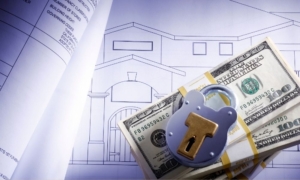Ontario Rent Deposit Law
Intro
In Ontario, under the Ontario landlord-tenant laws, landlords are prohibited from charging their tenants a security deposit.
Instead, a landlord can ask for last month’s deposit. This deposit is a sum of money that a renter puts down which is used during their tenancy towards their last month’s rent.
A rent deposit clearly differs from a security deposit. With a security deposit, the landlord keeps it for the entirety of the lease. It acts as a safety net for landlords against financial liabilities that may be caused due to tenant negligence. At the end of the lease, the landlord can either partially or fully return it.
Ontario tenancy laws outline how landlords should collect and handle a tenant’s rent deposit. In this post, we are offering a basic overview of the Ontario rent deposit laws!
Let’s get into it!
Last Month’s Rent Limit
You may be wondering: Am I limited in regard to how much I can charge my Ontario tenant? In short, there is a limit to how much you can collect. The specific limit depends on the type of rental agreement you’re operating.
If you’re operating a weekly agreement, then the rent deposit you collect shouldn’t exceed a week’s rent. Similarly, if you are operating a monthly agreement, then you shouldn’t collect a deposit that exceeds the rent of one month.
Last Month’s Rent Purpose
A rent deposit serves an important purpose. It holds the unit down for the tenant for a certain period of time. Of course, during this time, you cannot rent the unit to another tenant.
You can retain the entire deposit if the tenant fails to move in within the specified period. Otherwise, you must return the deposit back to the tenant.

Last Month’s Rent Increase
As an Ontario landlord, you can increase the last month’s rent, if you choose to increase your rent. Keep in mind that your last month’s rent should be the same amount as the rent you’re charging your tenant.
So, suppose you were charging your Ontario tenant a rent of $2,000 a month, you can collect last month’s rent of $2,000. However, once the one year period is up, you can decide to raise the rent according to the Ontario Landlord-Tenant Board rate for that year.
Interest on Rent Deposit
The rent deposit can earn interest. You must pay your tenant any interest that the rent deposit accrues each year. If you fail to do so, then any interest you owe your tenant will be compounded yearly. The interest payable to a tenant is based on the amount of rent you’re holding. This is in accordance with the Residential Tenancies Act.
If your Ontario tenant wants to collect it, then you can subtract it from their rent. You must have their consent to do this.
Pet Deposits
Ontario landlords are not permitted to charge a pet deposit. This is unlawful in Ontario.
Key Deposits
In Ontario, key deposits are legal so long as they meet certain requirements. To begin with, a key deposit is refundable at the end of the term. Once the tenant returns the keys, you must refund the deposit back to them.
Damage Deposits
As an Ontario landlord, you cannot collect a damage deposit. You aren’t permitted to mitigate your risks by requiring your tenants to pay a damage deposit.
Therefore, it’s important you know how to screen tenants thoroughly in order to avoid potentially problematic tenants. Ideally, you want to find a tenant who is creditworthy, makes a good monthly income, and has no relevant criminal past.
To land such a tenant, you may want to ask prospective tenants the following:
- How much income do you make on a monthly basis? This will help you ensure that your tenant will be able to pay the rent on time every month.
- What is your credit rating? You can verify the information they give you by running their details using either Equifax or TransUnion. This will cost you around $20. Alternatively, join the Ontario Landlords Association. As a member, among other things, you may be able to do credit checks for as low as $10.
- Have you ever been evicted? If they say yes, find out more. Of course, be on the lookout for red flags, such as due to nonpayment of rent or violating other terms of the lease.
- Why are you moving? Look for legitimate reasons for moving, such as to upsize or downsize, or to get closer to a new job.
Needless to say, your screening process must adhere to Ontario’s anti-discrimination and anti-harassment policies.

Bottom Line
As an Ontario landlord, you may not collect a security deposit. Instead, you can only collect last month’s rent and a refundable key deposit (if you decide).
We hope this overview of the Ontario rent deposit laws was helpful! For more information, feel free to contact Property Hunters Inc.
Disclaimer: This blog isn’t intended to be a substitute for professional legal advice. Also, laws change and this post might not be updated at the time you read it. For further help, please get in touch with Property Hunters. Property Hunters is an experienced property management company that has been helping Windsor property owners achieve peace in mind since 2006.

